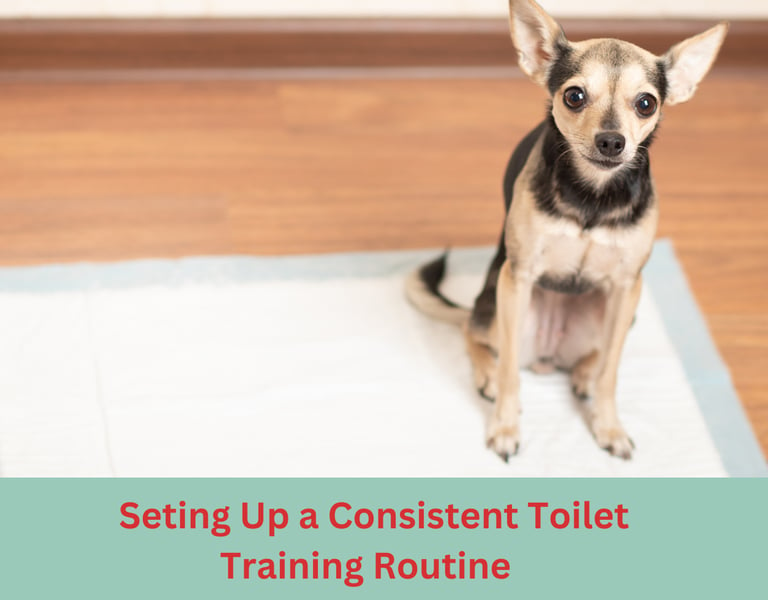Mastering Advanced Puppy Training Techniques for Lifelong Skills.
Explore essential strategies and tips for effective puppy training. Learn how to socialize your puppy, commit to ongoing training, and ensure your furry friend develops obedience and confidence in various environments. Elevate your puppy's skills with our expert guidance and resources.
5/8/20245 min read


Puppy training tips
Mastering Advanced Puppy Training Techniques for Lifelong Skills
Welcoming a new puppy into your home can be an exciting and rewarding experience
As a responsible dog owner, it's essential to invest time and effort into training your puppy to ensure they develop good behavior and lifelong skills.
Advanced puppy training techniques can help you achieve this goal, but it requires patience, consistency, and positive reinforcement.
In this article, we'll explore the importance of advanced puppy training, discuss various techniques, and provide tips for successful training.
Why Advanced Puppy Training Matters
Puppy training is not just about teaching basic obedience commands; it's about laying the foundation for a well-behaved and well-adjusted adult dog. Advanced puppy training techniques can help you:
1. Strengthen your bond: Training your puppy builds trust and strengthens your relationship, creating a lifelong connection.
2. Prevent behavioral issues: Addressing potential behavioral problems early on can prevent them from becoming ingrained habits.
3. Enhance socialization: Socialization is critical for puppies, and advanced training techniques can help you navigate complex social situations.
4. Improve communication: Advanced training helps you understand your puppy's body language and behavior, enabling effective communication.
Advanced Puppy Training Techniques
1. Positive Reinforcement Training: Focus on rewarding desired behavior rather than punishing undesired behavior. Use treats, praise, and affection to encourage good behavior.
2. Clicker Training: A type of positive reinforcement training that uses a clicker to mark desired behavior, followed by rewards.
3. Agility Training: Engage your puppy in physical activity, such as obstacle courses, to improve coordination, balance, and confidence.
4. Redirected Behavior: Redirect your puppy's attention away from undesired behavior and towards a more acceptable alternative.
5. Chaining: Break complex behaviors into smaller steps, gradually building up to the desired behavior.
6. Shaping: Gradually build complex behaviors by reinforcing small steps towards the desired behavior.
7. Back-Chaining: Start with the final step of a complex behavior and work backwards, reinforcing each step.
Tips for Successful Advanced Puppy Training
1. Be Consistent: Establish a routine and stick to it, ensuring all family members are on the same page.
2. Keep Training Sessions Short: Puppies have short attention spans, so keep training sessions brief and fun.
3. Use High-Value Rewards: Use high-value treats and praise to motivate your puppy and reinforce desired behavior.
4. Gradually Increase Difficulty: Gradually increase the difficulty level of training exercises to challenge your puppy and prevent boredom.
5. Provide Clear Communication: Use clear, concise commands and body language to communicate with your puppy.
Common Challenges and Solutions
1. Distractions: Minimize distractions during training sessions, and gradually increase exposure to distracting stimuli.
2. Lack of Focus: Use high-value rewards and keep training sessions short to maintain your puppy's focus.
3. Fear or Anxiety: Use positive reinforcement techniques and gentle exposure to help your puppy overcome fears or anxieties.
4. Plateaus: Change your training approach or environment to challenge your puppy and prevent plateaus.
Socialization and Advanced Training
Socialization is a critical aspect of puppy training, and advanced training techniques can help you navigate complex social situations:
1. Expose Your Puppy to New Environments: Gradually introduce your puppy to new environments, people, and experiences.
2. Practice Social Skills: Practice basic social skills, such as walking on a leash and interacting with strangers.
3. Desensitize Your Puppy to Noises: Desensitize your puppy to loud noises and sudden movements.
Advanced Training for Specific Behaviors
1. Leash Walking: Practice loose-leash walking and introduce distractions, such as other dogs and people.
2. Stay and Wait: Gradually increase the duration of stay and wait commands, introducing distractions and distance.
3. Recall: Practice recall in various environments and situations, using high-value rewards and clear communication.
Training for Life Skills
1. Basic Obedience: Master basic obedience commands, such as sit, stay, and come.
2. Household Etiquette: Teach your puppy household etiquette, such as not jumping on furniture and not stealing food.
3. Problem-Solving: Encourage problem-solving skills, such as figuring out how to get a treat out of a puzzle toy.
The Importance of Patience and Consistency
1. Patience is Key: Training a puppy requires patience, as they learn and grow at their own pace.
2. Consistency is Essential: Consistency is crucial in puppy training, as it helps to avoid confusion and ensure clear communication.
Advanced Training Tools and Resources
1. Training Equipment: Utilize training equipment, such as clickers, whistles, and treat dispensers.
2. Online Resources: Take advantage of online resources, such as training videos, blogs, and forums.
3. Professional Guidance: Consult with a professional dog trainer or behaviorist for personalized guidance.
Common Mistakes to Avoid
1. Inconsistent Training: Avoid inconsistent training, as it can lead to confusion and frustration.
2. Over-Training: Avoid over-training, as it can lead to burnout and decreased motivation.
3. Punishing Undesired Behavior: Avoid punishing undesired behavior, as it can lead to fear and anxiety.
Benefits of Advanced Puppy Training
1. Improved Behavior: Advanced puppy training can lead to improved behavior, such as reduced barking and chewing.
2. Increased Confidence: Advanced training can increase your puppy's confidence, enabling them to navigate complex situations.
3. Stronger Bond: Advanced training can strengthen your bond with your puppy, creating a lifelong connection.
Conclusion
Mastering advanced puppy training techniques requires patience, consistency, and positive reinforcement. By investing time and effort into training your puppy, you'll set them up for lifelong success and a strong, loving relationship. Remember to stay calm, patient, and positive, and don't hesitate to seek professional help if you encounter challenges.
By following these advanced puppy training techniques and tips, you'll be well on your way to raising a well-behaved, well-adjusted, and loving companion.
Final Tips and Recommendations
1. Stay Committed: Stay committed to training your puppy, even in the face of challenges.
2. Seek Professional Help: Seek professional help if you encounter difficulties or have concerns about your puppy's behavior.
3. Celebrate Successes: Celebrate your puppy's successes, no matter how small they may seem.











